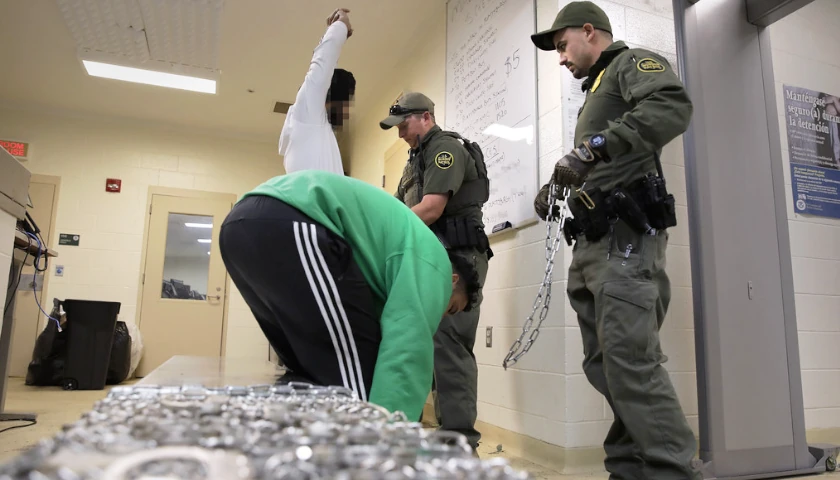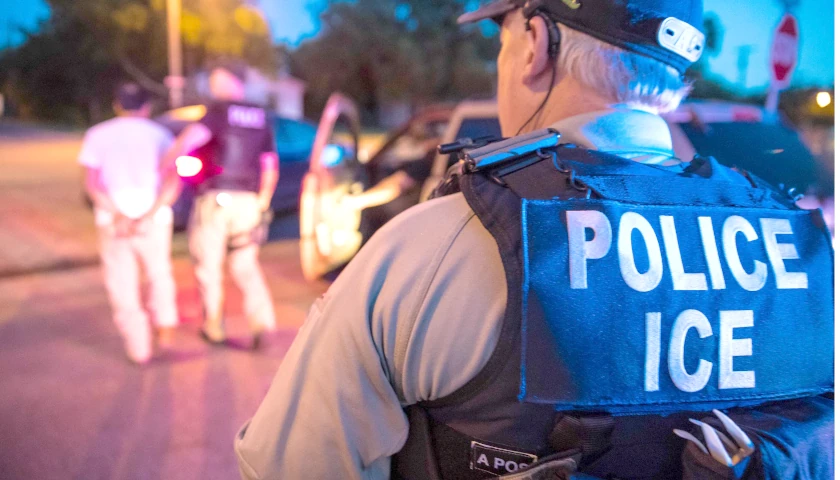by Casey Harper
Leading Republican lawmakers in the U.S. House of Representatives filed new legislation that would ban federal employees from working with big tech companies to censor Americans.
The bill comes as ongoing reports show that federal law enforcement and the White House have regularly communicated with social media companies like Facebook and Twitter, pressuring the companies to remove posts and accounts for a range of issues, including questioning the COVID-19 vaccine.
“The collusion between bureaucrats and Big Tech has gone on for far too long. Government agencies shouldn’t censor the free speech of Americans,” said Judiciary Committee Chairman Rep. Jim Jordan, R-Ohio, who is helping lead the effort. “The Protecting Speech from Government Interference Act is an important first step toward transparency and accountability for Biden’s bureaucrats and Big Tech.”
The bill would prevent federal officials from using their influence or authority, “including contracting, grantmaking, rulemaking, licensing, permitting, investigatory, or enforcement actions – to promote the censorship of lawful speech or advocate that a third party or private entity censor speech.”
For violators, the bill uses the same penalties for violations of the Hatch Act, which can include removal, fines, or a reduction in pay. The bill singles out high level officials, banning them from personally advocating for this kind of censorship.
The House now has a Republicans majority, emboldening those lawmakers. However, their legislation will still have a tough time in the divided Senate and faces a potential veto from President Joe Biden.
That legislation, though, can give a window into what action Republicans will take if they win the White House and Senate in 2024.
“The actions taken by the Biden administration to pressure Big Tech to censor content online are an attack on our fundamental right to free speech,” said Energy and Commerce Committee Chair McMorris Rodgers, R-Wash., who is also helping lead the effort. “It’s time for this behavior to end.”
The legislative proposal comes alongside an investigation from the House Oversight Committee, which is digging into federal law enforcement and the White House’s work with these companies.
One particular instance of censorship has rallied opposition to tech companies controlling information on their platforms.
Billionaire and new owner of Twitter Elon Musk has authorized a series of document dumps called the “Twitter files” which helped expose more details about the tech companies’ collusion with federal law enforcement and the Democratic Party behind the scenes to censor the Hunter Biden laptop story before the 2020 election.
So far, the “Twitter files” have featured most notably internal communications between top Twitter executives, the Biden administration and federal law enforcement.
Last year, the Oversight Committee launched an investigation into the Department of Homeland Security after news broke that Facebook had an online portal where federal law enforcement could flag content that it wanted removed. The Department of Homeland Security’s Cybersecurity and Infrastructure Security Agency reportedly relied heavily on the portal, flagging posts to be removed.
“This effort began after CISA partnered with left-leaning organizations and Big Tech companies to launch the Election Integrity Partnership,” House Oversight Committee said in its letter to Department of Homeland Security Secretary Alejandro Mayorkas. “The EIP provides an online complaint-processing platform that permits groups – including the Democratic National Committee on at least four occasions – to submit ‘tickets’ reporting narratives they flagged for concerns.
“‘Tickets’ were frequently resolved by taking one of several actions: 1) banning the user from posting his or her lawful speech or deplatforming the individual entirely, 2) algorithmically restricting the reach of the speech on the platform, or 3) adding other information, such as a warning label, to the post alerting users to the post’s disfavored status,” the letter added.
The White House has downplayed the portal, but former Press Secretary Jen Psaki admitted the White House had a hand in regulating information.
“We are in regular touch with the social media platforms and those engagements typically happen through members of our senior staff and also members of our COVID-19 team, given as Dr. Murthy conveyed, this is a big issue of misinformation specifically on the pandemic,” Psaki said at a press briefing in July of last year, referring to the U.S. surgeon general, Dr. Vivk Murthy.
– – –
Casey Harper is a Senior Reporter for the Washington, D.C. Bureau at The Center Square. He previously worked for The Daily Caller, The Hill, and Sinclair Broadcast Group.
Photo “Man on Phone” by Michael Burrows.





